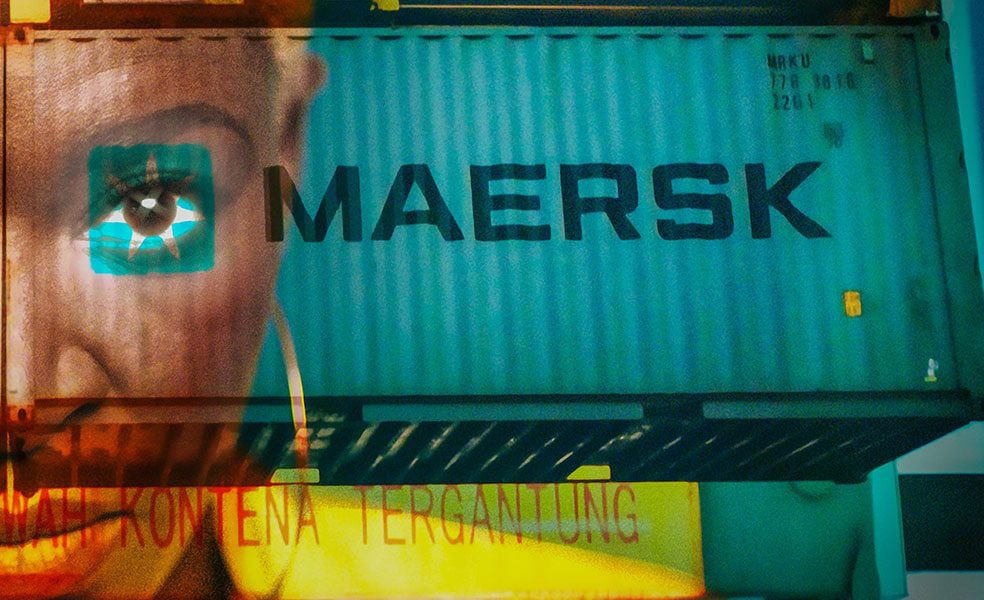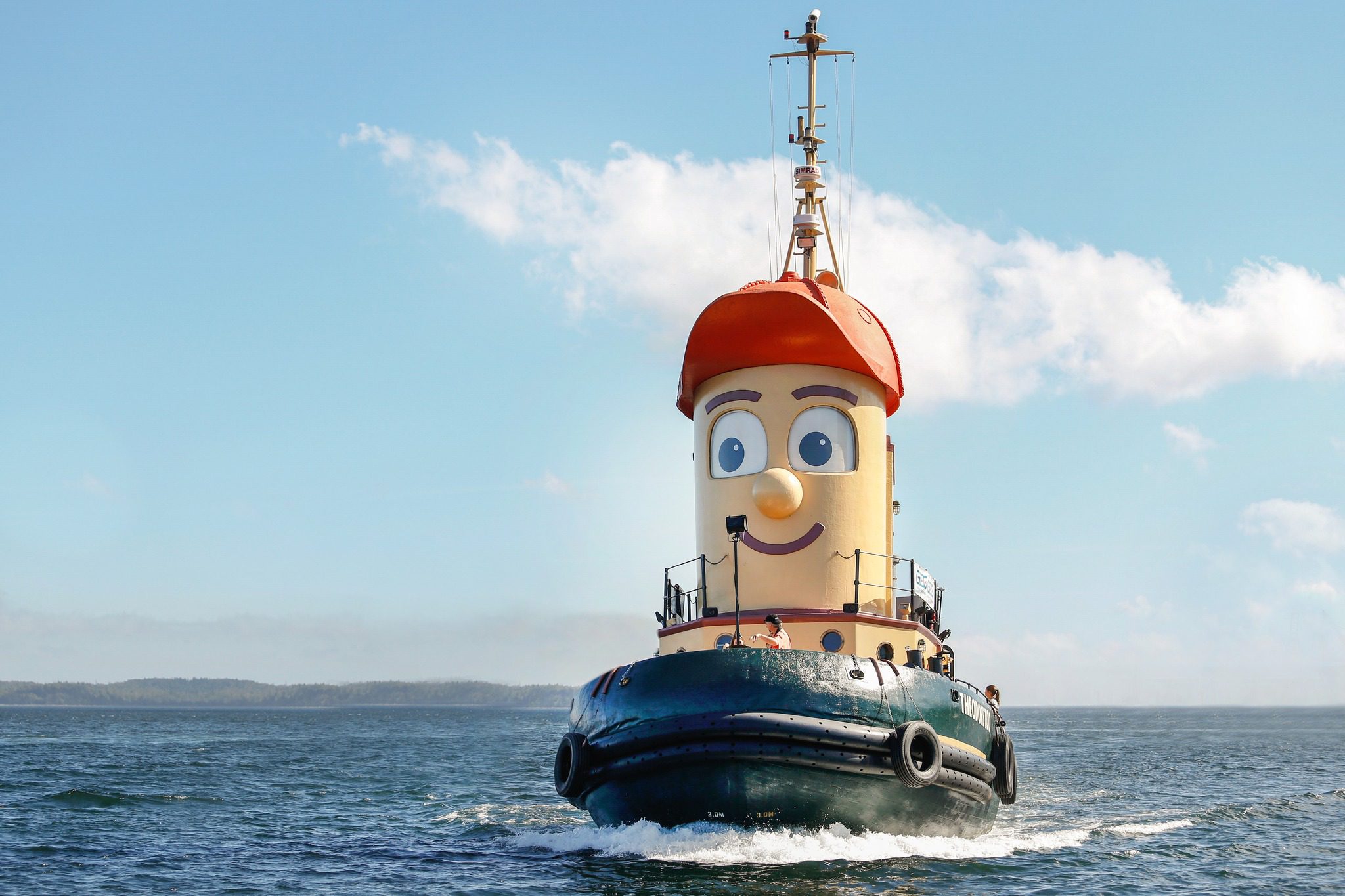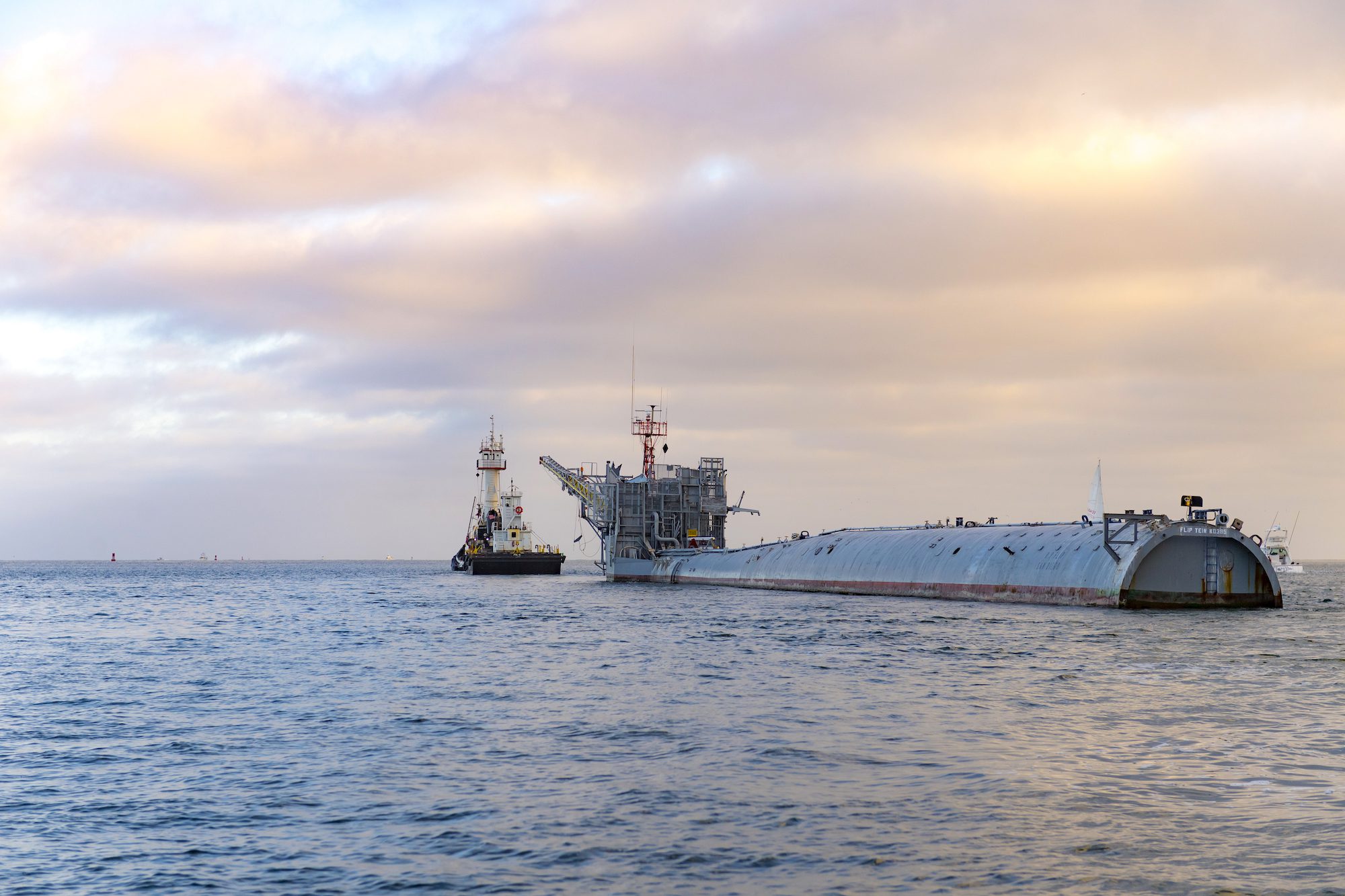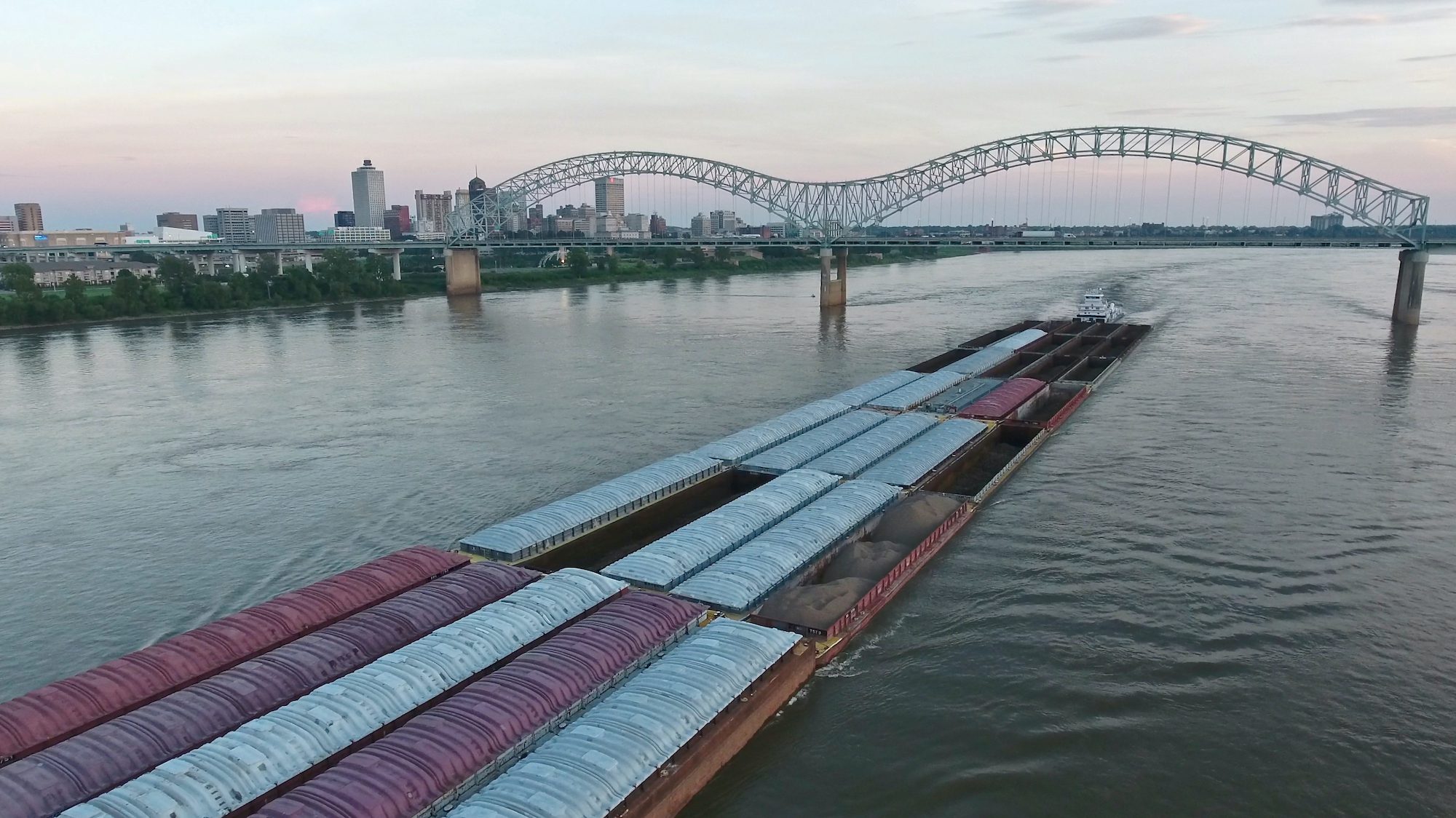If a tree falls in a forest and no one is around to hear it, does it make a sound? What if a seafarer is raped?
by Captain John Konrad (gCaptain) Today is the Day Of The Seafarer and rather than participate in our industry’s regular line of bullshit, I want to tell a story. A story that is shocking because it is true.
Many decades ago, the world’s second-largest tobacco company had a major problem. By 1969 they understood that their product kills and sales would die off as the public learned this deadly secret. To solve the problem, they purchased the greatest invention of the twentieth century, the shipping container, along with SeaLand, the company started by its inventor, Malcolm McLean. This solved big tobacco’s problem because it enabled them to move cash from a dying industry to a quickly growing one.
By the 1980’s, R. J. Reynolds Tobacco had a bigger problem. Billions of dollars of class action lawsuits threatened to lead to the arrest of its mighty fleet of ships, seizure of untold numbers of SeaLand containers, and closure of its network of terminals and logistics hubs. It needed legal protection for its assets. It needed STRONG protection so it spun off the company in 1984 but kept big tobacco executives in charge. Pieces were sold off to Harold Simmons and CSX but, by 1999, cigarettes were causing 404,750 premature deaths in the United States, $157 billion in annual medical costs, and millions of deaths globally. The remaining big tobacco owners of SeaLand who had profited from the death of more people than were killed in the holocaust, needed a Switzerland to hide their gold, they needed a small but strong European country to hide their nicotine-stained ships.
The country big tobacco picked was Denmark and the company they entrusted their assets to was A.P. Møller – Mærsk.
The Military Industrial Complex
If we rewind the clock further… more truths are exposed. The conventional story is that SeaLand was the child of Malcolm McLean, a truck driver, inventor, and entrepreneur working to disrupt an industry. The truth, as outlined in Dr. Mercogliano’s book The Fourth Arm Of Defense, is that by 1967 SeaLand was on the brink of bankruptcy, and containerization was doomed to fail until a deal was made with the Pentagon to ship weapons and carcinogenic chemicals to Vietnam.
When you click the About Us on the Maersk website, you are told, “A.P. Moller – Maersk has a storied past, and we are proud of our long history.” Under core values, it says “Our company builds on an impressive heritage of pioneering success and growth. Our long legacy and our Values guide our business every day and also ensure that we can do business tomorrow.”
Scrolling down their timeline you get an overview of every major event of the company’s history from its birth as Dampskibsselskabet Svendborg (The Steamship Company Svendborg) to the recent demerger of Maersk Drilling. Several mergers and acquisitions are mentioned but not the three biggest events in the company’s history: Malcom McLean’s invention, the Vietnam War, and the deal it made with Big Tobacco insiders.
How much of nicotine’s stain is Maersk responsible for? How many big tobacco executives profited from the acquisition? How much of the stain of the Vietnam war remains with Maersk? Maybe none but it’s hard to tell when the history has been erased for their website.
Journalists call this type of censorship PR Whitewashing.
Not mentioned at all is a word critical to their success: cancer.
This is not just the story of Maersk, it is the story of gCaptain. In 1969 Sealand containers arrived at Cam Rahn terminal in Vietnam, were loaded on trucks, and delivered to Tan Son Nhut Air Base in Saigon where my father was working as a medic. Thirty years later, on the day Maersk and SeaLand executives met to finalize the biggest deal of their careers, I lost my father to cancer due to Agent Orange exposure. Today he lies in Arlington National Cemetary, but he is not alone there. Because shipping containers were so effective the US military was able to ship vast quantities of this chemical and over 300,000 Americans have died from Agent Orange exposure, that’s nearly five times the number of people who died in combat during the war, and does not account for the untold millions of civilians who were killed or maimed as well.
From 1967 to 1973, SeaLand delivered more than 1,200 containers a month to Vietnam, resulting in $450 million in revenues from the U.S. Defense Department. Agent Orange was shipped in these containers, Maersk’s official corporate history book, conveniently starts in 1973, just after the Vietnam war ended.
Maersk has never apologized to my family for the role of SeaLand in my father’s death… but that’s ok. I am not an apologist. This article is not about cancel culture. I don’t care about their corporate ethics statement or woke values. I care about the seafarers. I care about the truth. The type of truth they are clearly willing to erase. The truth about seafarers.
Follow The Money Frank
The point is that below the surface of this industry flows subsea currents of money, political influence, and legal maneuvers. Most of those influences tie back to big American business, the military-industrial complex, and the silent hand of America’s modern military.
Prior to Vietnam, my nation had solved many problems seafarers face today. Today we celebrate a handful of ports for vaccinating mariners but prior to Vietnam seafarers visiting America’s ports had unlimited access to vaccines and free healthcare in large federally funded Marine Hospitals. We had our own doctors, and nurses, veterans’ benefits, free retirement homes, cemeteries, and well-funded pension plans.
Marad is still important, while the pentagon disabled most of these benefits and pushed the US Merchant Marine to the sidelines, they retained much of their control over policy. Many of these seafarer treatment laws are still on the books, but few outside the United States even know that MARAD exists and, despite pressure from big media organizations like Forbes, Biden’s top candidates for the job are (with exception) industry unknowns.
Is MARAD and the IMO weak because of neglect or by design?
After World War II poor conditions existed at sea but the United States (and several EU flag states) did set a fine example for the treatment of seafarers aboard US Flag Vessels. We no longer set a good example. Today, MARAD, the government organization in charge of advocating for American Seafarers, doesn’t even have a single seat in the IMO. Sitting in my nation’s seats are US Military officers, and the most powerful person leading the IMO is a two-star US Military flag officer.
Yet few in Europe or Asia consider America’s lingering role in maritime politics. The US Merchant Marine is dead. MARAD is powerless. The US Coast Guard is underfunded and spread thin. The Navy isn’t interested in shipping.
The shipping world perceives America as weak yet some of the largest flags of convenience have headquarters on American soil, have defense agreements with the Pentagon, and employ countless retired US Military officers. Wall Street and American hedge funds are the biggest financiers of ships today. Many enormous shipping companies (e.g. Carnival) are listed on our stock exchanges. The US Navy is the world’s most powerful ship owner with a $211.7 billion yearly budget, and bipartisan support, and international influence via NATO.
EU and Asian industry insiders can (and usually do) ignore American shipping interests then wonder why it’s so difficult to facilitate change. The reason is because the Pentagon and Wall Street are more influential than anyone wants to admit but their influence is silent.
When was the last time you noticed a senior US or NATO Naval officer at an industry conference? Maybe you should invite them? The cruise lines have Pentagon flag officers on their boards and they have no trouble negotiating new regulations or obtaining billions of dollars of emergency covid financing. They hire American Admirals, maybe you should too?
Or maybe you can help expose the entire system of subsea pentagon power and influence by supporting maritime journalists? Either way is fine by me just don’t continue ignoring MARAD and Wall Street and the Pentagon and American journalists and expect results from the IMO or EU.
Maersk Has More Political Influence Than You Think
Some say the political system in America is broken. Maybe, but then how does Maersk, along with the other majors, have the power to get local port authorities to spend billions of dollars of American taxpayer money-raising bridges, widening roads, and rebuilding terminals to flood hopelessly poor towns like Newark, New Jersey with thousands of megaship containers? How can they force major taxpayer-funded infrastructure projects through congress but president Biden can not?
How can they force ports, and canals, and flag states, and classification societies around the world to spend hundreds of billions collectively to accommodate their new megaships but they can’t get MARAD or the IMO to agree on basic emissions standards or seafarer rights regulations?
When was the last time the CEO of Maersk visited the MARAD or rolled up his sleeves at an IMO committee, or flew the top maritime journalists to Denmark? If Søren Skou truly wanted consensus on seafarer rights and emission standards he would.
Today, IMO’s “Day Of The Seafarer“, every shipping company in the world, every maritime organization, every nation is going to praise the work of seafarers and politely ask that more is done to improve criminally poor conditions at sea. Of course, they WILL NOT use the word criminal but will find some kinder euphemism to describe the problem. Nice, and kind, and collaborative, and inclusive, will be the words of the day. Rubbish.
Seafarers don’t need nice. We need truth.
The truth is that certain maritime, and military, and financial entities do have enormous amounts of political leverage. They just don’t choose to use that leverage to promote seafarer concerns. Why?
Suicide Is Painless
At the very moment, the IMO or MARAD or Maersk issues their Day Of The Seafarer statement a mariner at sea will be writing a different kind of note. A suicide note.
This is not an article to point fingers at Maersk. I do not know what lengths they went through to protect the SeaLand legacy from class-action lawsuits. I don’t know what legal liability they have today. Is it possible that pulling SeaLand from the grips of big tobacco was a good thing? I don’t know. Nobody does. Most of the people who made the Maersk/SeaLand deal are retired or dead. Who even cares? Not I. Several of those executives passed away from lung disease. Is that Karma at work?
The purpose of this article is simple. We can not know the truth without investigations and publicity. To improve conditions at sea we need two things: hard facts and political will. We do not know the facts behind the SeaLand/Maersk deal because, in 1999, the big maritime media interests – Lloyds List, FairPlay, and Tradewinds – did not invest in the investigative journalism needed to uncover the full story.
Stories are important but, unfortunately, the stories told by Maersk, the IMO, Pentagon, and our industry today are not written by journalists or historians, they are most often written by public relations departments.
If A Tree Falls
The sad truth is that every single time a corporate Vice President of whatever is promoted our inboxes flood with announcements. Every time the IMO holds another committee meeting Twitter pings our phone. Every time a sailor is raped or commits suicide we are bombarded with the cacophony of silence.
The Solution
The solution is not cheap but neither is the millions of dollars our industry spends on PR and social media campaigns. The solution is to tell more accurate stories. But what stories are most effective? Stories that tell the full truth.
Related Video: The power of storytelling | Andrea Gibbs, TED Talks
We do know the facts behind a few other incidents.
The birth of Classification Societies, invention of the Plimsoll Line, creation of SOLAS, the helicopter rescue swimmer program, Gumby suit mandates, and OPA90 (to name just a few advancements for the protection of seafarers) all share one common denominator.
Most people say that the common denominator is the loss of life, they say that today’s safety regulations are written in the blood of past seafarers. This is not true. To this day we lose almost a ship every week and few are even investigated. How could they considering we collect less than 30% of VDR black box recordings?
Incidents do not lead to regulatory change.
Investigative journalism + industry cooperation = political will = change
Classification Societies emerged from public gatherings. The load lines were mandated because Fleet Street began investigating lost ships and gave Samuel Plimsoll all the ink he needed to fight the powerful ship-owning MPs in Parliament. SOLAS was not created because the Titanic sunk, it was created because great journalists like Ernest Hemingway followed the money and published graphic headlines. Double hull tankers were not mandated because the Exxon Valdez hit a rock, they were mandated because Intertanko understood the press would not rest until it cleaned up its act.
We know this to be true because even small incidents have had a large impact on the safety of seafarers. In 1980 the SS Poet sank and 34 seafarers were lost at sea. It was barely investigated and no laws were changed. Then on February 12th, 1983 a similar ship, the Marine Electric, sank for the same reason but this time the Philadelphia Inquirer gave Robert Frump a full investigative team and spent hundreds of thousands of dollars researching the case. The result was forcing the US Coast Guard to push change. The rescue swimmer program and survival suit mandates are the direct results of the Inquirer’s efforts.
Maersk And The IMO
Understanding the currents of influence, reporting the truth, and telling the seafarers’ story is the key to obtaining basic human rights at sea but neither Maersk nor the IMO spends money on journalism because they know that money spent here will be spent on journalists who report the truth. The whole truth. The whole dirty uncomfortable truth.
It is the job of maritime news organizations to understand and report on that truth but doing so is expensive. And it’s not just us. Maersk spends less than 0.001% of its budget supporting Splash 24/7. Tradewinds, Maritime Executive, The Shipping Podcast, FreightWaves, TheLoadstar, and countless others like Frank Coles, and Rachel Slade, and Ally Cedeno, and Sal Mercogliano are publishing the truth. Few, if any, maritime news organizations have the funding to deeply investigate these issues. How many have even been invited to the IMO to speak about their findings?
Do you know who does spend money supporting maritime news? The Pentagon. They know the secrets of power and influence.
If we want to help the seafarer we can not rely on MARAD, IMO or Maersk. We must push them to tell the truth and support the journalists who are willing to support both the industry itself and the seafarers who want basic human rights. We need Maersk to stop erasing history and start investing in shipping’s fourth estate.

 Join The Club
Join The Club











